Creators & Entrepreneurs
A Beginner's Guide to Digital Products
Learn what digital products are, and some benefits and examples to help inspire you to create your own.
Author
Mighty Team
Last Updated
February 6, 2025

Table of Contents
If you’ve ever disappeared into a rabbit hole of posts on “passive income” or “how to make money online,” you’ve probably come across the term “digital product.” And you might be confused about what a digital product is, how it’s different from a traditional product, and how one goes about making and selling a digital product.
In this article, we’ll answer the question: “What are digital products?” And we’ll give you some benefits and examples to help inspire you to create your own.
What is a digital product?
A digital product is a digital good that is created, sold, and purchased online. In most cases, it is even consumed online (except for things like printables).
Unlike physical products you buy online, which need to be stuck in a box with packing peanuts and shipped, digital products are delivered via the internet, usually instantly after your purchase.
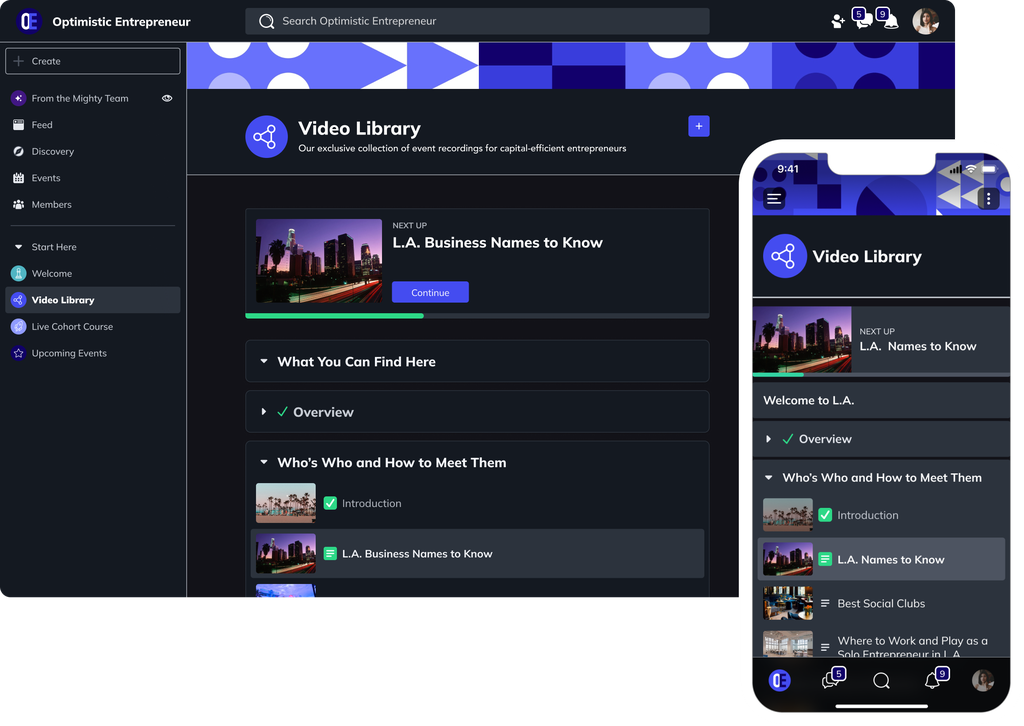
The internet created a new way of doing business and made it possible for a wave of new types of products, plus the digitization of a bunch of old-world products.
You used to go to the bookstore to buy the newest Harry Potter. Now you might just get it on your e-reader or phone. Once upon a time, you’d buy a paper project planner or calendar. Now you probably use digital project management software or Google Calendar.
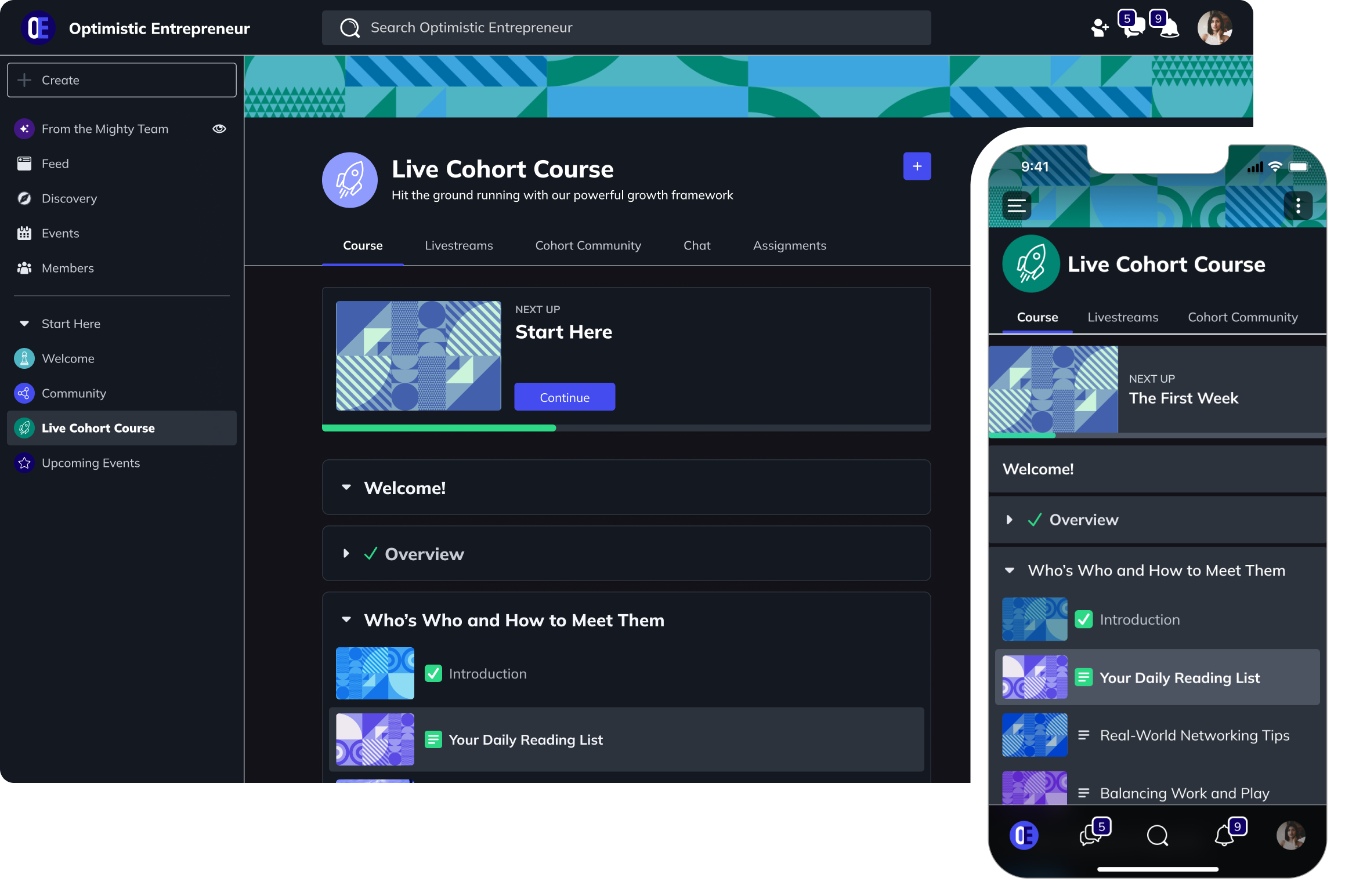
Benefits of digital products
Digital products are a fantastic monetization option for creative entrepreneurs. Here are some of the reasons why!
Scale: Digital products are often endlessly scalable. When you sell a new digital course or ebook, you don’t need to create them again. You simply give the user access to that digital product through some sort of paywall. That’s a huge advantage for a brand–you don’t need to think about things like manufacturing or shipping. You can just keep selling!
Recurring revenue: Some digital products or services are sold on a membership or subscription model. This can create a recurring revenue business–collecting monthly fees. Most SaaS companies work on this model (think Microsoft), as well as subscription content (e.g. Netflix or The New York Times).
Simplicity: Physical products require manufacturing, quality control, shipping, returns, and more. Digital products don’t include this, meaning that a digital business can be a better path to more profits.
Automation: If you’re on the elusive quest for passive income, digital products can be automated like nothing else.
Easy to create: Every year, the software solutions to create the digital products we talk about below get more and more accessible, making it easier and easier to create them. Better platforms, more features, easier payments, bigger online marketplaces with more saturation–the access to digital products is constantly improving.
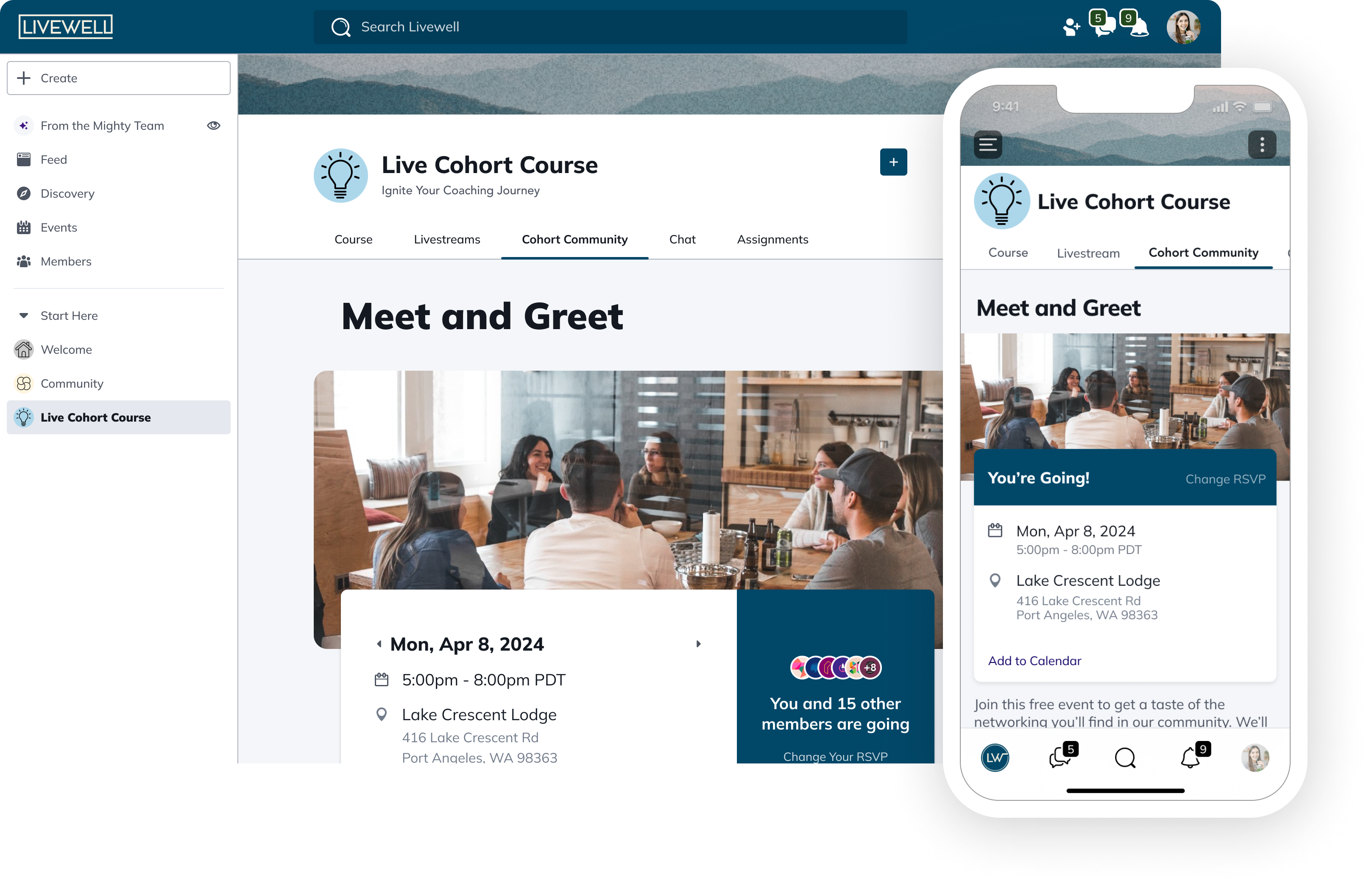
Challenges to selling digital products
But don’t be fooled by their simplicity. Although digital products are everywhere, it can take a lot of work to make a good one, and many don’t sell. Here are some of the challenges in selling digital products:
Oversaturation: We live in an age of digital product oversaturation, so slapping any old thing into a PDF and putting a price tag on it is unlikely to get you many customers. The best digital products are well-researched, well-executed, and constantly improved.
More competition: Selling a product in your hometown means competing with local businesses. Selling a digital product online means competing with EVERYONE.
There’s a lot of free content: If the knowledge you’re selling exists for free on YouTube, it’s more of a challenge to sell.
Customer fatigue: Most of us are bombarded with digital products and offers every day. Sometimes a digital product can be seen as yet another X.
Sometimes seen as less valuable: You can pour your heart and soul into a digital product, but sometimes it will be seen as less valuable than its physical counterpart. (It’s important to be clear on its value proposition.)
You need digital marketing: There’s no storefront here. Selling digital products requires mastering some form of digital customer acquisition.
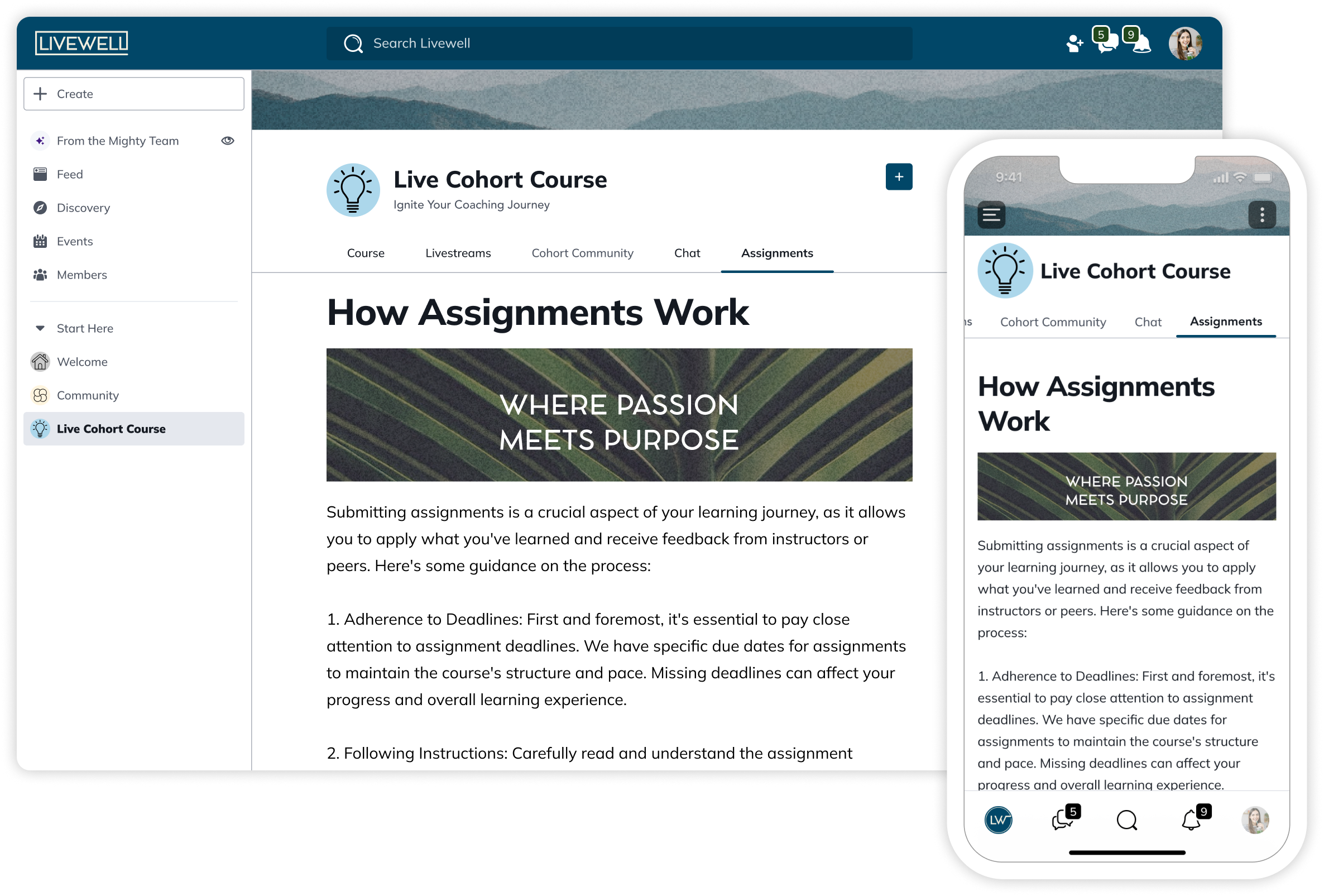
How to Sell Digital Products
For each of the examples below, we’ll give you some tips for how to sell that digital product. But above all, there’s one business model we love. The community flywheel. A community flywheel was named the business model of the 2020s by McKinsey, and it’s a great reason to throw your sales funnel out the window.
Unlike a funnel–which sells to a tiny percent of your potential members–a community flywheel happens when you intentionally create communities, get a brand story that’s contagious, and feed that community with content (after which your members start creating their own content). When you launch a digital product in this environment, it makes selling effortless… It’s the best way to sell a digital product.
The secret is creating space for fans, customers, followers, or whatever, to convert into members. When people belong to something, you've got the recipe for member-led growth that will catapault your brand forward.
You can read more about creating your own flywheel here.
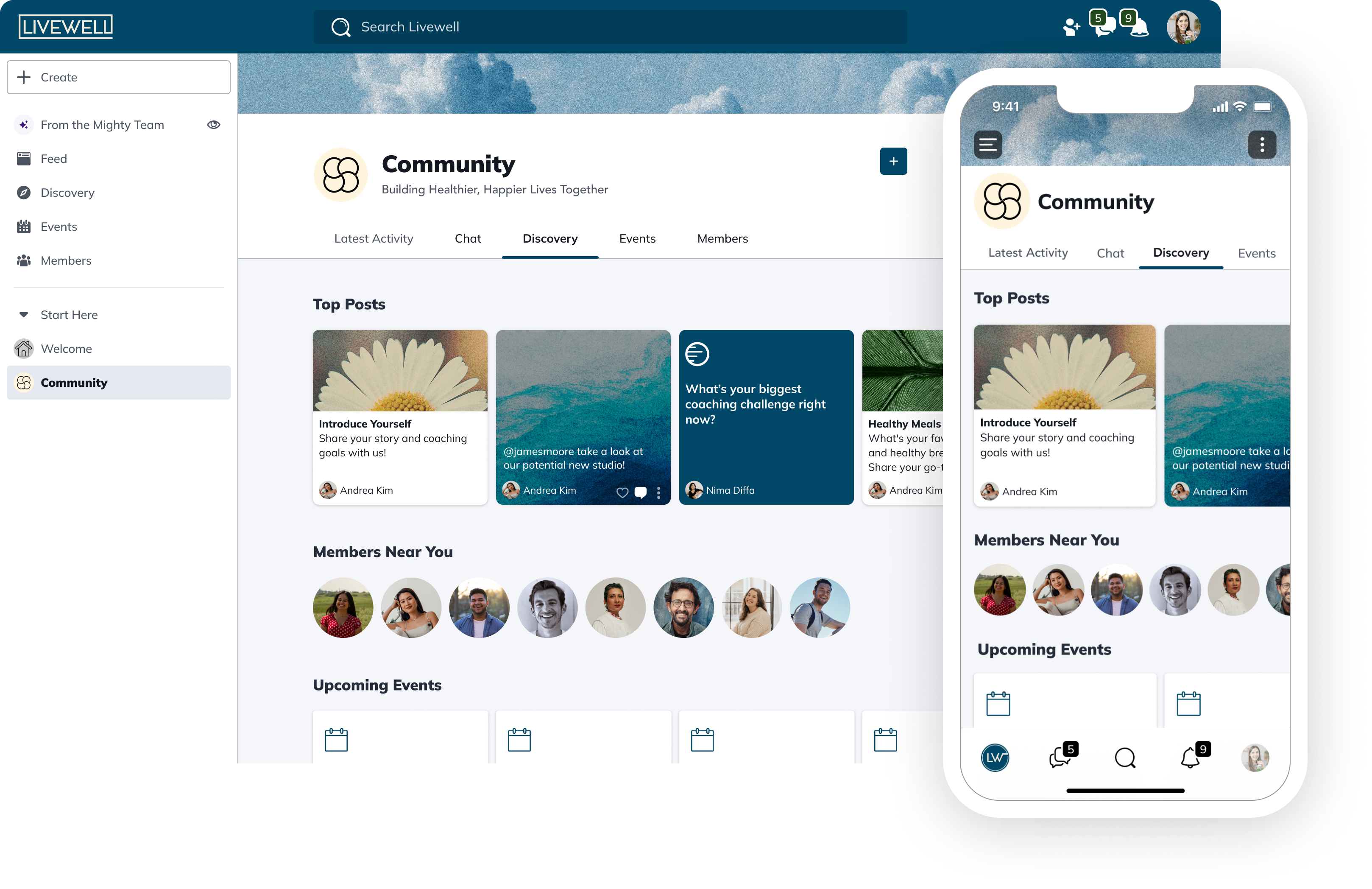
Examples of digital products
We have a bigger list of some digital product ideas, but here are some examples of digital products.
1. eBooks
eBooks were one of the first digital products, but they’re still working! It’s projected that eBook revenue will be $14.7 bn USD in 2023. And with tools like Amazon for sales or Reedsy to create and typeset books–the tech is more accessible than ever.
If you’re creating and selling your own eBook, you’ll need to find the intersection of what your ideal readers need/want and what you know (or you’ll need to hire writers who know it better than you).
But you’ll also need to figure out how to market your book and make the sales (collecting the money).
Tips for selling eBooks
Spend the time to create a quality product. People who fall in love with your book are more likely to recommend it to others. Provide value, and make sure it’s easy to read and interesting. Find beta readers to give you feedback early and consider hiring a professional editor.
Do your research. Find out what your readers want. If you’re writing non-fiction, what do they want to accomplish? What will your book help them do? You can even interview a few people before you start.
Optimize for SEO. Amazon is a search engine too. If your book title fits with something people are searching for, it’s got a better chance of selling (For example, “How to pay flamenco guitar” or “How to start a hair salon”).
Make it look pro. You can use a tool like Reedsy to professionally typeset your book for free.
2. Online Courses
Online Courses started as simple online teaching–when they started, courses were a glorified blog post. But eLearning has blossomed into a $848bn market.
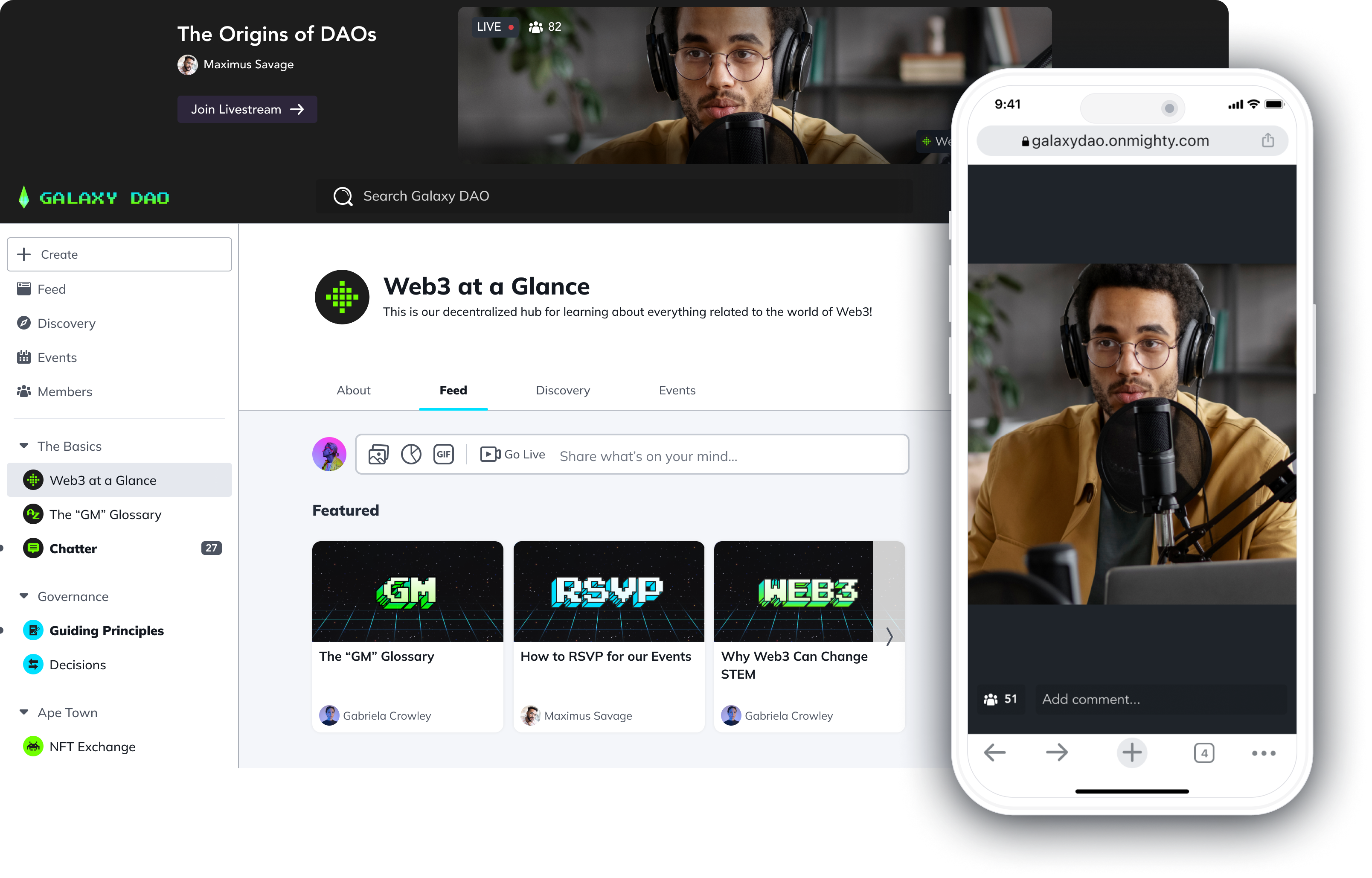
Online courses still dominate digital products, and have even transformed higher education. The biggest shift right now is the rise of cohort courses–that’s a course that’s taught live online–which is better for members and produces better results!
Tips for selling online courses
Do your research: Again, it’s not radical advice, but a successful course starts with an Ideal Student. Find the person you’re going to teach–and study the transformation they want! What results should the online course give them?
Sell transformation. Resist the urge to tell your students everything you know. Instead, give them only what they need for the transformation (goals) they want to achieve.
Try a cohort course. Honestly, there are so many online pre-recorded (asynchronous) courses to choose from. Cohort courses are taught live, letting the instructor and students get to know one another and learn together. Cohort courses are special, and students are paying a premium for them.
Niche more than you think you need to. With so much competition, the niche is more important than ever. For example, forget about a generic course (e.g. “marketing”) and instead think about something specific (“SEO strategies for small businesses.”)

3. Apps
The app market is also exploding in value, projected to reach $755.5 bn by 2027. The rise of software solutions and more and more flexible ways to monetize a mobile app means that apps are a digital product we’ll see for a long time to come.
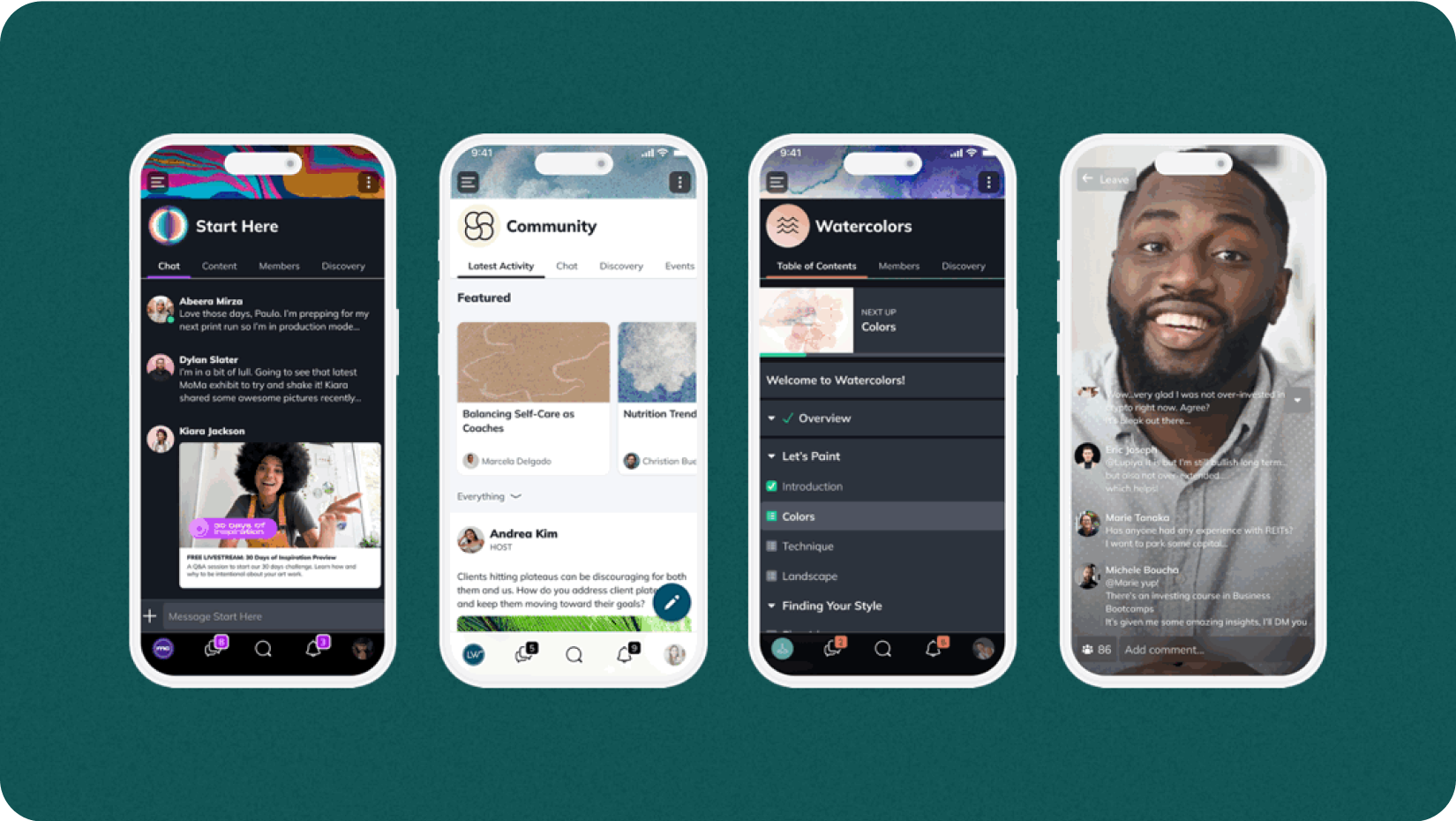
Tips for selling apps
Research your ideal users and market before you build. It’s a good idea to interview some potential users. Be realistic about what the app will do for them.
Create a monetization strategy that fits your target Revenue Per User–this lets you earn more from fewer users if you choose.
Create a clear description, catchy visuals, and test the UX (or make sure your app development company does).
Collect reviews as fast as you possibly can.
We build awesome community apps with Mighty Pro!
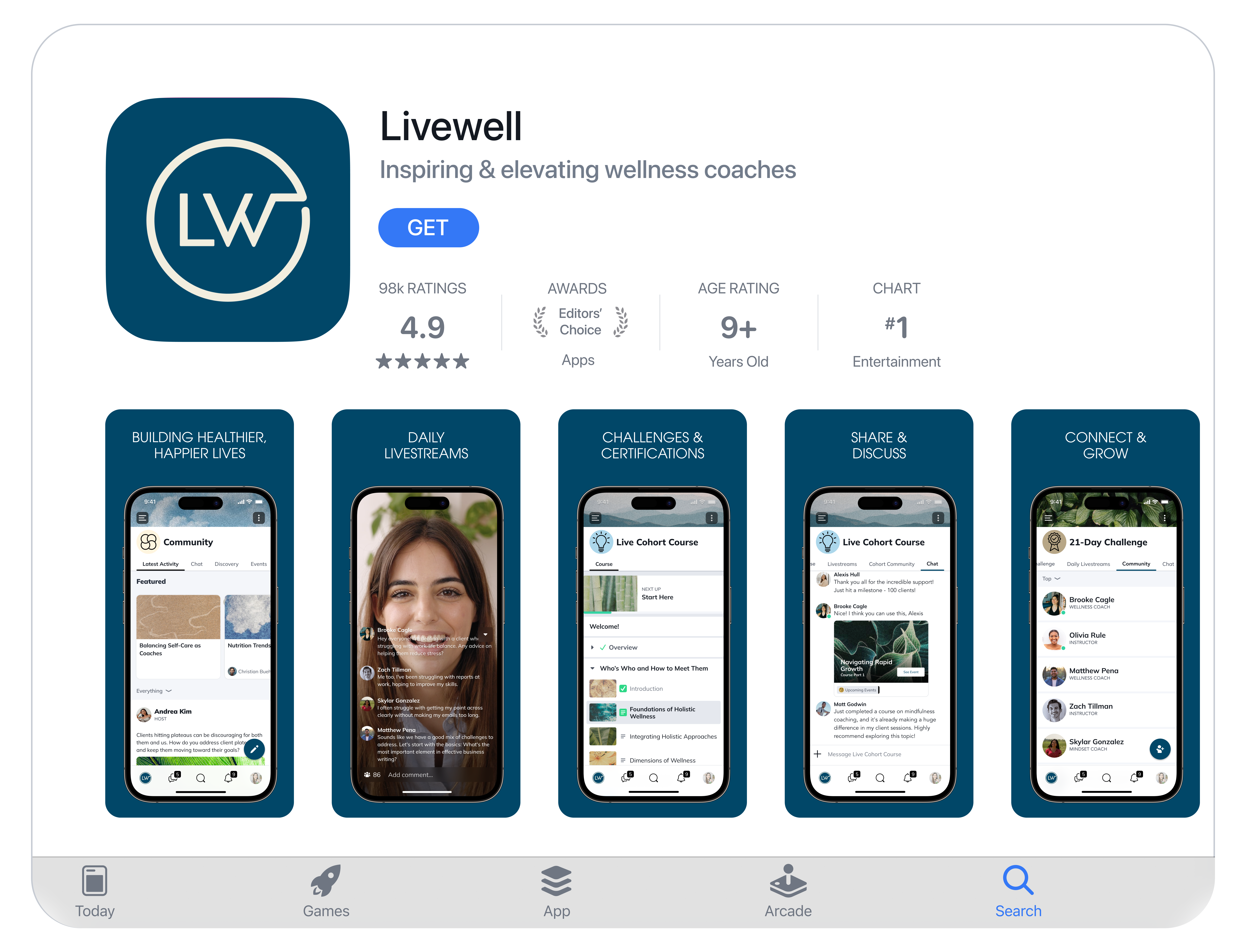
4. Software
For people with coding skills, creating software to sell–either as a SaaS solution or a white-label product is an attractive digital product. Creating software is tremendously scalable. And if your software fits a clear market need, it can be the way to enormous profitability.
Some types of digital products that are software include:
SaaS tools
Premium website themes
Premium browser extensions
White-label software to sell in a marketplace
Tips for selling software
Here are some tips for creating and selling a software solution.
Choose the business model that makes the most sense for your product. Having a SaaS model that’s Freemium might work really well for an in-demand browser add-on or a premium service. Or, some things might be better white-labeled and sold again and again.
Think about how much ongoing support you need to offer. If you’re selling software that’s going to see regular use, your users need to know they can get support if they need it and you’ll probably have to do continual upgrades.
5. Printables
Printables are STILL working as a digital product, which is cool. You create some type of info or art product–a budget, art, house plans, etc.--and people can pay to download the file and print it themselves. Platforms like Etsy make it really easy to sell printables.
If you’re selling printables, people usually either buy because the information on the printable solves a problem for them (e.g. a calculus cheat sheet), it helps them organize something they couldn’t otherwise (e.g. a premium project planning tool), or it’s just creative and appealing (e.g. a piece of wall art).
Tips for selling printables
Check out marketplaces. Unless you have existing website traffic or a following, it probably makes the most sense to sell printables on a marketplace–that way you can focus on creating the best possible product (and let them handle the store front).
Etsy is the go-to printables marketplace, but Amazon and Facebook Marketplace can also work (You can find our Etsy Shop Name Generator here).
Get the format right. Research how to properly format the printable or else you’ll end up with disappointed customers!
6. Communities
Our favorite digital product is a community! Communities thrive by creating a member-led growth business where conversations and transformations happen. And yup, you can sell memberships, and/or courses, events, private groups, and more!
Starting a community is ridiculously easy with a modern community platform–our Mighty Co-Host™ tool even uses AI to instantly build your community for you! And you can build your brand on your own platform, and even get your own branded app if you want.
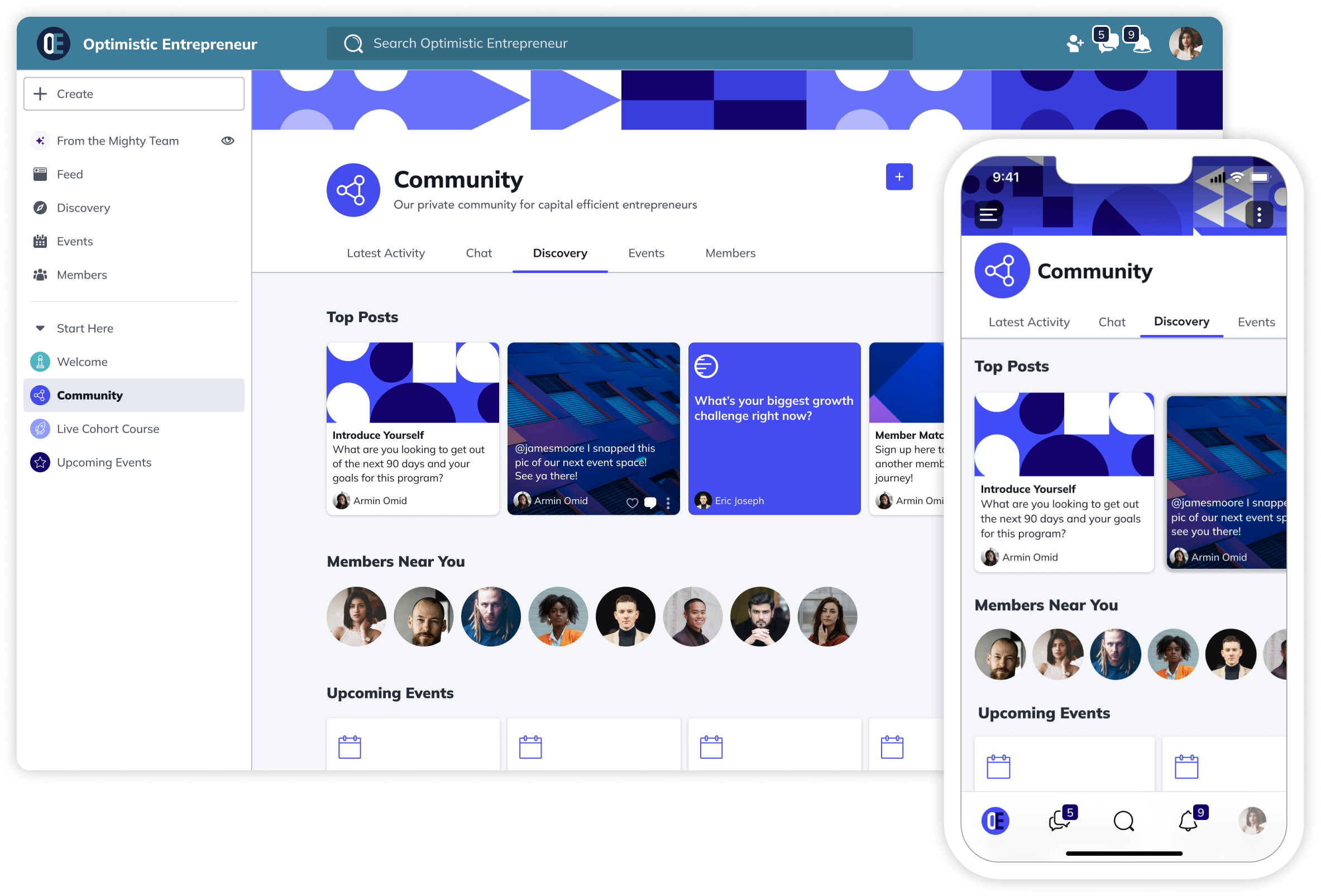
Tips for selling communities
Have a clear Big Purpose to bring your community together around a shared value.
Charge a membership fee–Our average community charges $27-$33/mo, and we’ve found that paid communities often have better engagement; people value what they pay for.
Use a modern community platform that gives you everything you need for a thriving community: discussion forums, chat & messaging, courses, live events, and more.
Ready to start building your community?
Start a free 14-day trial to explore Mighty—no credit card required.
More like this
Join Mighty Community
Learn the principles of Community Design™ (and see them in action) alongside thousands of creators and entrepreneurs. It's free to join!

Online Courses
Creating a Course
Teaching a Course
Course Platforms
Selling a Course
Communities & Memberships
Community Platforms
Managing a Community
Building a Community
Growing a Community
Monetizing a Community
Creators & Entrepreneurs
Monetization
Content Creation
Starting a Business
Website Builders
Creating & Managing a Website
Events
Event Platforms
Hosting & Marketing Events
Branded Apps
Creating a Mobile App
Coaching Apps
Community Apps
Coaching
Mastermind Groups
Starting a Coaching Business
Coaching Platforms
Filter by Category
Online Courses
Communities & Memberships
Creators & Entrepreneurs
Events
Branded Apps
Coaching
Start your free trial
14 Days. No Credit Card Required.





















